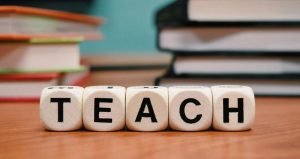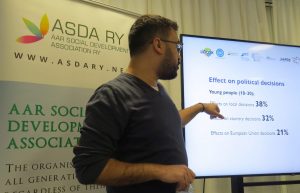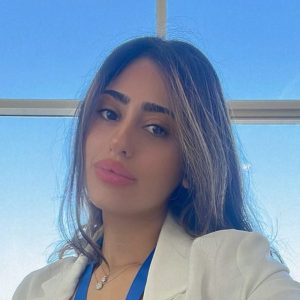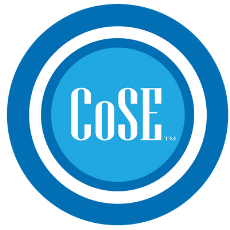Written by Natalie Chaar
Reading time: 5 minutes
Upskilling, Reskilling and Cross-skilling
Have you ever pictured the future’s educational system? What is next? Well, educational institutions have been facing a lot of dramatic changes throughout the years. Also, ample of learning approaches were developing and the ones that were thought to be efficacious, educational sectors embedded them in their curriculum. It is necessary to acknowledge that education is not only about literacy, but also the skills used in the process of attaining the knowledge required. Many scholars throughout the recent years have discussed the idea of 21st century skills because they have conceived what the future education will be like. However, the main questions will be the following: How can 21st century skills be taught and what instructional approaches are more appropriated for 21st century skills?
How 21st century skills got noticeable
The concept of 21st century is quite wide and incorporates areas such as critical thinking, creativity, problem solving, computational thinking, collaboration, and ICT skills (Siddiq, F., Olofsson, A.D., Lindberg, J.O. et al., 2023). If you ever visited educational institutions 10 years back, you would discern that these skills were not of high importance to teachers, because learning was traditional. However, nowadays it is expected from teachers to be granting students the opportunity to learn at their own pace, by offering them various collaborative activities and including them in the process of learning and evaluating.
Four years back when Covid-19 appeared and everything shut down, it is impressive to say that most of the educational institutions were quick to adapt and shift their teaching virtually. However, can you imagine how stressful this was for teachers who were only used to teaching in the classrooms, for students who were only used to learning in school, and parents who did not have the needed digital literacy? Yet, all parties collaborated and tried to cater for the students’ needs. This was the actual time when everyone discerned how digital competence was evolving quickly and how the 21st century skills were highly required in learning.
Magic learning mixture
To flourish and succeed in today’s world you need the magic mixture. If you are wondering what this magic mixture is, it is the combination of specific skills, knowledge, expertise and the basics; Reading, Writing, and Arithmetic, but most significantly the 21st century skills. Teachers and trainers are the key to this magic mixture, once they master the ingredients, they will be able to deliver this magic mixture to younger generations and achieve educational reforms and curricular changes. This world is fast-paced, and this is not the only competence the educational system is facing, but also there are areas such as the Artificial Intelligence (AI) and algorithmic Intelligence (Siddiq, F., Olofsson, A.D., Lindberg, J.O. et al., 2023).
Therefore, the educational sector has a lot to keep up with, and to be able to do that, teachers should be well trained and convinced with the new changes taking place.

Teachers’ preparedness for 21st Century Skills
It is necessary to cultivate 21st-century skills in students, it is also essential to deliberate on how this goal can be achieved successfully. According to Almazroa and Alotaibi, it is very important to have proper training mechanisms in place for teachers and student-teachers. Indeed, there is an urgent need to ensure that teachers are trained effectively so that they are successful in supporting and promoting skill development in their students (2023).
As a start to the 21st century skills journey, teachers should be trained on being facilitators rather than teachers in the classroom, this means that students should learn autonomously through their curiosity and interpretations. This is the real “student-centered” learning environment. As a teacher and once being taught through traditional strategies which did not emphasize 21st century skills will be difficult to implement them in their classrooms, and this is why dense and efficient professional developments are needed to support these teachers and trainers. According to Voogt and Roblin, the European Union’s concept of 21st century is about the following: Learning to learn, digital competence, cultural awareness and expression, social and civic competences, sense of initiative and entrepreneurship, and communication (2010).
Also, since STEM (Science, Technology, Engineering, and Mathematics) integration is an important part of developing 21st-century skills in students, scholars have noted that it is important to have well-thought programs that can promote teachers’ ability to design, develop and implement effective curriculums. Not to forget that for teachers to be able to integrate those skills in their classrooms, they should use the resources needed such as “Ipads” to start with. In this case, peer-mentoring and peer-observation could be helpful because trainers or teachers could learn even more from one another, aside from the professional developments on how to use these resources effectively.
Critical Thinking (CT)
Thornhill-Miller B, Camarda A, Mercier M, Burkhardt J-M, Morisseau T, Bourgeois-Bougrine S, Vinchon F, El Hayek S, Augereau-Landais M, Mourey F, et al. declared that: “Creative thinking is central to better outcomes in daily life and general problem solving, to intelligence and adaptability to academic achievement. There must be awareness of distorted information in the media, to differentiate between opinions and facts, and how to handle increasingly large bodies of information required to understand and evaluate information in the modern age” (2023). Developing a critical thinker is an important way to achieving the 21st century skills, because the critical thinker is someone who is open to acknowledge other perspectives, curious to interpret, rational and flexible. Hence, this also makes that person a creative thinker and this is what we want to instill in the educational system through the teachers and trainers; Critical and creative thinkers who are willing to adapt to the 21st century skills and learn independently in a way that interests them.
Thus, according to the framework of the European Union, learning strategies should include formative assessments, hands-on learning, cooperative activities, problem-solving learning along with the ICT. Hence, if these learning strategies were delivered properly, teachers will be able to instill critical and creative thinking skills in their students’ learning.

Erasmus+ Project in non-formal learning
Project D.R.E.A.M.LAND is an Erasmus Plus Cooperation between Turkey, Italy, Belgium, Sweden, Slovenia, Finland, France and Republic of North Macedonia to make young people willing to participate actively in civil society and political life at local, national, and European scales.
The D.R.E.A.M.LAND project is specifically designed to tackle these challenges and empower youth. It acknowledges that the participation of these young people in political life and civil society is not just desirable but essential to achieving the 2050 Carbon Neutral Europe target.
In the context of educating youth, the D.R.E.A.M.LAND project seeks to:
- Amplify Representation: Advocate for increased representation of disadvantaged youth in decision-making bodies, ensuring their unique needs and perspectives are taken into account.
- Provide Access to non-formal Education: Offer educational programs and resources tailored to the needs of disadvantaged youth, fostering their understanding of sustainability and environmental issues in terms of online/offline materials e-guides, courses, research papers etc.
- Facilitate Economic Opportunities: Collaborate with organizations and initiatives to create economic opportunities for disadvantaged youth, allowing them to actively participate in sustainability efforts.
For more information about this project you can visit the website; D.R.E.A.M. LAND – Developing Routes of Europe’s future through non-formal learning with Active youth Members (dreamland-project.eu)

Natalie Shaar, a 24 years old educator who graduated from the American University of Beirut, with a Bachelor in Education; emphasis on English and Social Studies. Natalie worked in the field of Education in different countries for 3 years; as an Educator and as a vocal leader in the Education sector. My experience throughout the past years fostered my communication skills, especially with youngsters, and pushed me further to discern the importance of sharing the knowledge and experience that I possess with others.
BIBLIOGRAPHY:
- Intell. | Free Full-Text | Creativity, Critical Thinking, Communication, and Collaboration: Assessment, Certification, and Promotion of 21st Century Skills for the Future of Work and Education (mdpi.com)
- Sustainability | Free Full-Text | Teaching 21st Century Skills: Understanding the Depth and Width of the Challenges to Shape Proactive Teacher Education Programmes (mdpi.com)
- Special issue: What will be the new normal? Digital competence and 21st-century skills: critical and emergent issues in education | Education and Information Technologies (springer.com)
- White Paper 21stCS_Final_ENG_def.doc (pbworks.com)
